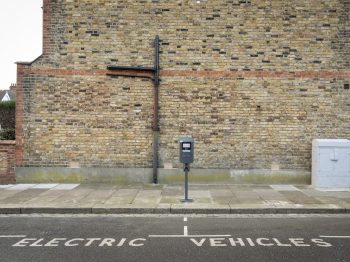Fears for £1.5bn shortfall in government EV infrastructure funding
The Government’s EV infrastructure funding could fall short by more than £1.5bn, leaving the UK at risk of missing its net zero goals.

Liberty Charge has said the private sector “should and can handle the funding gap needed to meet charge point targets”
So says public charge point operator Liberty Charge, which has called on the private sector to step in and help plug the gap.
Following the Government’s recent announcement of its Electric Vehicle Infrastructure Strategy, which pledges to increase the UK’s EV charge points 10-fold, Liberty Charge says the £450m Local Electric Vehicle infrastructure (LEVI) fund included as part of the strategy falls short of real-life costs.
In total, the Government has committed some £1.5bn in funding for rapid and transit charge points across the UK. But Liberty Charge believes this is just half of what it will cost to install the 300,000 public charge points needed to electrify the UK.
Instead, it’s urging private sector firms to help fund the installation and maintenance of charge points across many parts of the UK and calling on the Government to redirect the LEVI fund to where it is needed most, such as remote, rural regions and areas of higher deprivation where the commercial case is not viable. This in turn will help create a comprehensive nationwide charging network that eliminates the current ‘postcode lottery’ when it comes to charging provision.
Neil Isaacson, CEO of Liberty Charge, said the private sector “should and can handle the funding gap needed to meet charge point targets”.
“Local authorities urgently need more resources and funding to boost electric vehicle infrastructure, if the UK is to meet the deadline it has set itself of ending sales of new petrol and diesel cars by 2030.”
And the company is also calling for funds to “significantly amplify” the additional £50m announced in the Electric Vehicle Infrastructure Strategy, which will be used to fund staff to work on local challenges and public charge point planning.
The firm’s own research – due to be imminently revealed – highlights how chronically under-resourced local authorities are. Just 14% have dedicated EV infrastructure resources, 3% have none at all. On average three people work a collective 15 hours per week each on planning, commissioning and implementation. That’s less than half a full-time employee devoted to EV infrastructure rollout.
“I understand they’re under-resourced, but the Government will need to go further and faster if it’s really serious about hitting its net-zero target,” Isaacson added.
Finally, Liberty Charge has also echoed continued calls for the Government to tackle an “illogical policy” on VAT for public charging. Currently, on street charging is set at 20% VAT compared to only 5% for those with off-street charge points. This impacts the c.40% of drivers who don’t have access to a driveway to install a home charger. And for many people, particularly the disadvantaged, this is adding costs that put electric vehicles out of their reach.
The Government has said it’s got no plans to review the rate of VAT applied to EV charging – it’s pointed out that applying the reduced rate of VAT to electricity supplied at EV charging points in public places would come at a cost that would need to be balanced elsewhere.
But Liberty Charge – whose mantra is ‘sustainable, accessible electric vehicle charging for all’ – has said that something must be done to remove quite a significant barrier to EV uptake for affected drivers.
“Without the right size and scale of public charging infrastructure that gives confidence to households that don’t have off-street parking, they just won’t turn to electric vehicles, Isaacson stated.

